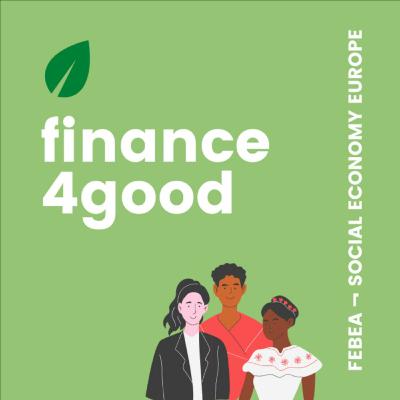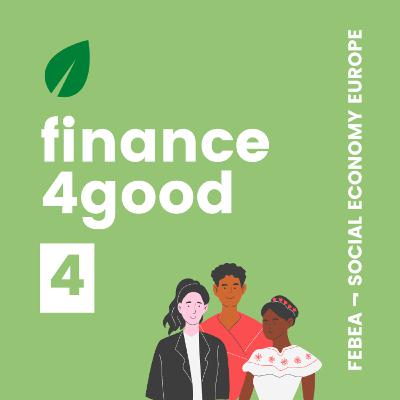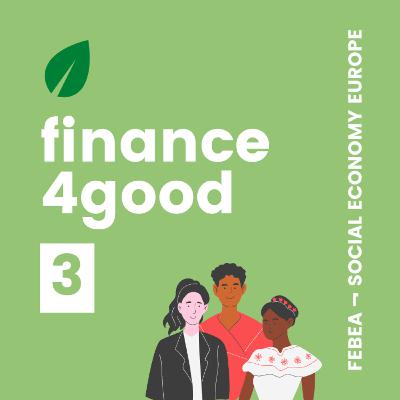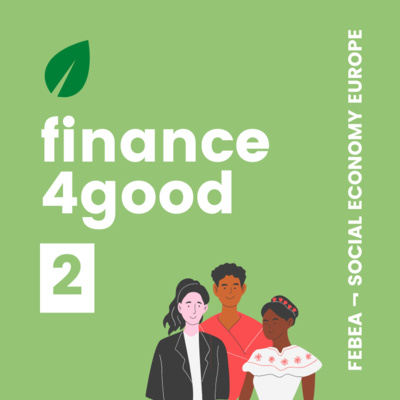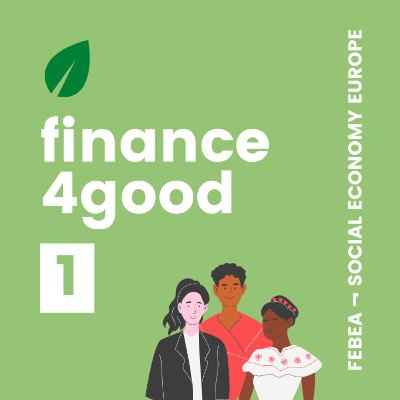Discover Finance4good
Finance4good

Finance4good
Author: Febea
Subscribed: 1Played: 0Subscribe
Share
© Febea
Description
Social Economy, ethical finance... those are some concepts that might not sound familiar to many people. However, we believe it's actually the future of economic systems and finance. Discover a bit more about it with these podcasts!
8 Episodes
Reverse
In this second edition of the FEBEA podcast series, following a comprehensive overview of Social Economy and Ethical Finance, we will delve deeper into the insights of some FEBEA members.
Ethical financiers are often an enigma for those not familiarized with SE or EF. To demystify their work, we invite some FEBEA members to the studio. This provides an opportunity to understand better what they do, how they operate, the values guiding their organizations, and why they choose to be members of a network like FEBEA.
In this episode, you can hear from Rui Machado, Technical Coordinator of the Portuguese member, CRESAÇOR, based in the Azores.
In this second edition of the FEBEA podcast series, following a comprehensive overview of Social Economy and Ethical Finance, we will delve deeper into the insights of some FEBEA members.
Ethical financiers are often an enigma for those not familiarized with SE or EF. To demystify their work, we invite some FEBEA members to the studio. This provides an opportunity to understand better what they do, how they operate, the values guiding their organizations, and why they choose to be members of a network like FEBEA.
In this episode, you can hear from Joanna Guedes, representing the Portuguese member, FESCOOP.
In this second edition of the FEBEA podcast series, following a comprehensive overview of Social Economy and Ethical Finance, we will delve deeper into the insights of some FEBEA members.
Ethical financiers are often an enigma for those not familiarized with SE or EF. To demystify their work, we invite some FEBEA members to the studio. This provides an opportunity to understand better what they do, how they operate, the values guiding their organizations, and why they choose to be members of a network like FEBEA.
In this episode, you can hear from Ivan and Amandinge, representing the French member, La Nef.
In this second edition of the FEBEA podcast series, following a comprehensive overview of Social Economy and Ethical Finance, we will delve deeper into the insights of some FEBEA members.
Ethical financiers are often an enigma for those not familiarized with SE or EF. To demystify their work, we invite some FEBEA members to the studio. This provides an opportunity to understand better what they do, how they operate, the values guiding their organizations, and why they choose to be members of a network like FEBEA.
In this episode, you can hear from Christina Buzcko, representing the Austrian member, the Cooperative for the Common Good.
Everyone claims to be social and green nowadays. We are surrounded by those self called sustainable or green banks, which actually only care about greenwashing and not being caught.
We will talk about the green and social taxonomy launched by the EU and how that's beneficial (or not) for ethical and mainstream banks.
One of the most important aspects of ethical banks is that they are capable of measuring the positive impact their loans are doing and how much they "saved" in terms of pollution by not financing harming activities for the planet.
Also, the cooperative governance, or the democratic ways of making decisions inside of the bank are really important aspects in those institutions. Get to know more about this in the podcast!
In this podcast we will learn about how ethical banks monitor different sustainable projects and how they make sure those projects are actually sustainable. We will get to know the financial institutions Community Finance Ireland (Ireland and UK) and Fondazione di Comunità di Messina (Italy).
In this series we will help explain what ethical banks and financiers can do for us, and why they represent a safer, fairer and more responsible place that we can invest our money, where we can know exactly what our money will be used for. As we will lear, this is not the case for traditional of mainstream Banks!


